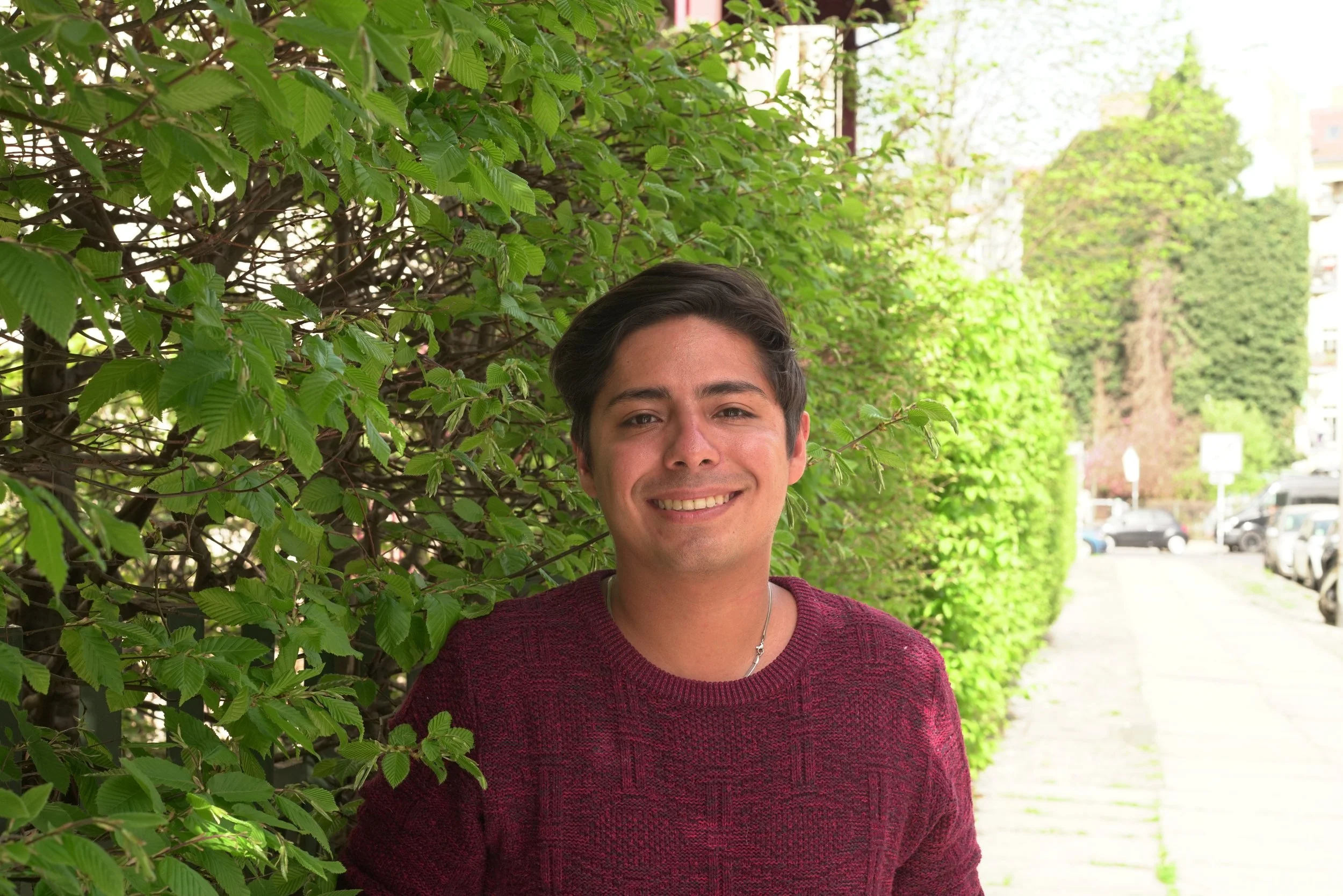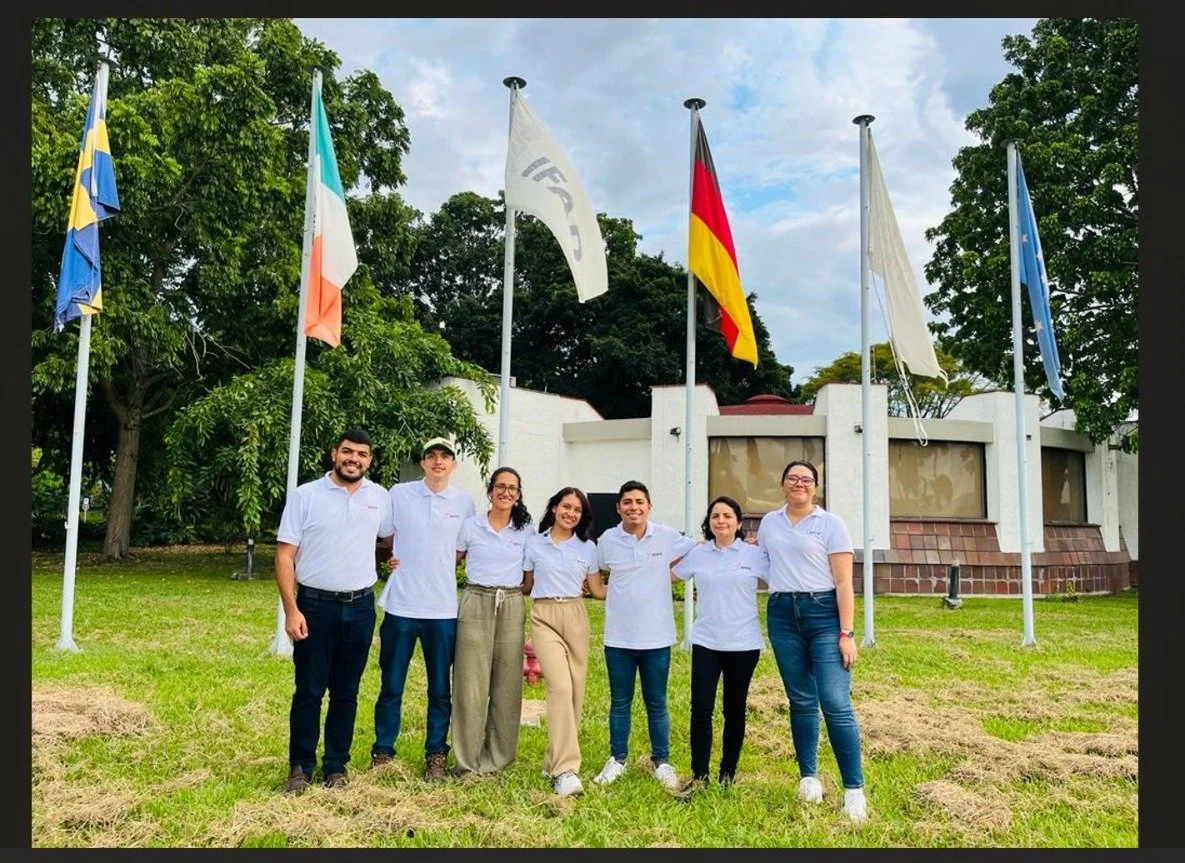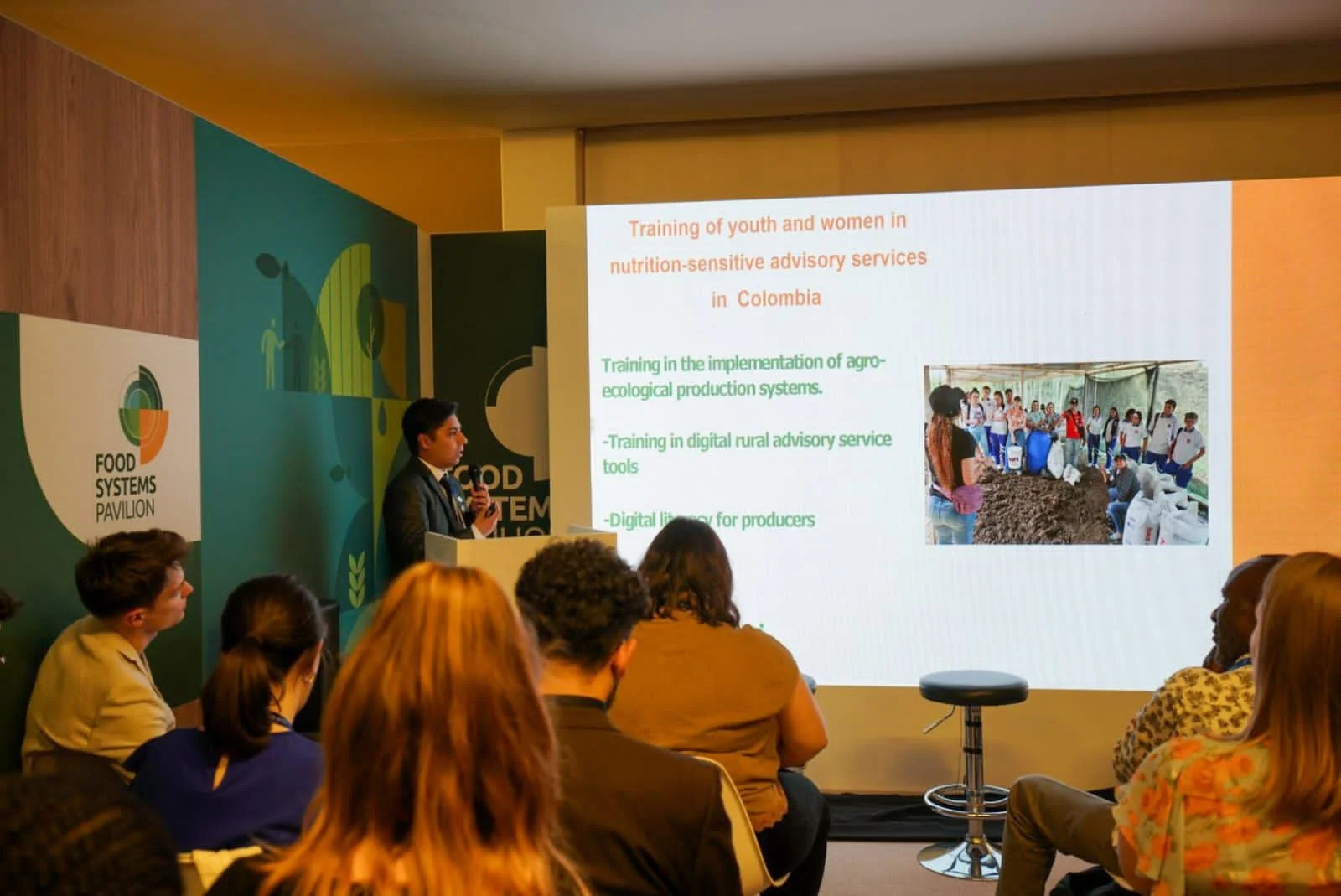Jean Sebastian Pedraza Paez
Pronouns: He/Him
Organisation: National Rural Youth Network; Young Professionals for Agricultural Development (YPARD)
Country of origin: Colombia
Profile
Sebastian Pedraza Paez (he/him) is a Colombian changemaker involved in rural youth advocacy and rural development. For the last ten years, Sebastian has worked with various peacebuilding organisations in Colombia and Latin America, formulating and executing projects that contribute to social and rural development. After participating in workshops on youth empowerment and conflict resolution, he began attending conferences and decided to study Politics, Political Sciences, and Rural Development.
Recognising that rural youth are particularly vulnerable in the ongoing Colombian conflict, he co-founded the National Rural Youth Network. This network represents the voices of rural youth and has since expanded to several Latin American countries. Sebastian currently serves as the chair of the steering committee and the coordinator for Latin America and the Caribbean at YPARD, a global organisation of young professionals working for agricultural development. He has spoken at international conferences hosted by IFAD and FAO and was recognised as one of 12 changemakers by the Kofi Annan Foundation in 2021.
Story
Despite the 2016 Colombian peace agreement between the government and FARC, threats and violence from armed groups persist, displacing over five million people. Recognising that ‘rural areas are the main scenario of conflict’, Sebastian began advocating for greater attention to rural youth in policymaking. Growing up in Colombia, Sebastian initially studied music and worked as a music teacher. He became aware of issues related to rural poverty and underdevelopment through his involvement in workshops. He observed that rural youth are often forced to move to cities, where some become involved in illegal groups, leaving behind an ageing rural population. He also acknowledges the gap between his own privilege and the realities of others. ‘I don’t think I was a bad person. But I was thinking just about myself, not about others,’ he said. While teaching music in a rural community for a UN project, Sebastian realised that offering music, photography, and dance lessons also created neutral spaces to discuss peace. He noted, ‘They may not learn music overnight, but something of this message is going to stay in their mind, in their lives.’
Sebastian believes many Colombians view peace as the government’s responsibility, and the concept itself can become politicised. For instance, he explained that supporting or rejecting the peace agreement during the referendum was closely tied to political parties. For Sebastian, however, peace is neither political nor merely the absence of conflict. Instead, he views peace as achievable only through consistent, small-scale actions at the individual level, such as resolving differences and finding common goals. ‘Because everyone is part of the problem, everyone needs to be part of the solution,’ he said. YPARD, where Sebastian is active, is a global movement uniting over 20,000 young professionals across eight Latin American countries. It collaborates with organisations, including UN agencies like IFAD and FAO, to foster cultural exchange and leadership initiatives for young professionals.
Sebastian understands the challenges of driving change in Colombia. Balancing his passion for helping others with personal needs and financial security is not easy, and navigating the complex politics of the Colombian government poses further difficulties. Working in rural areas without internet access requires costly and time-intensive travel. Despite these obstacles, Sebastian feels his efforts are impactful, ‘drop by drop’. He also sees himself evolving as a person—‘It feels like my entire life is about passion and love for others,’ he says. He notes that young people are increasingly seen as active changemakers. For Sebastian, this transformation is overdue: ‘We are the ones who will be in our governments and societies in the future. And we are also giving the message to the ones that are behind us—the children.’



